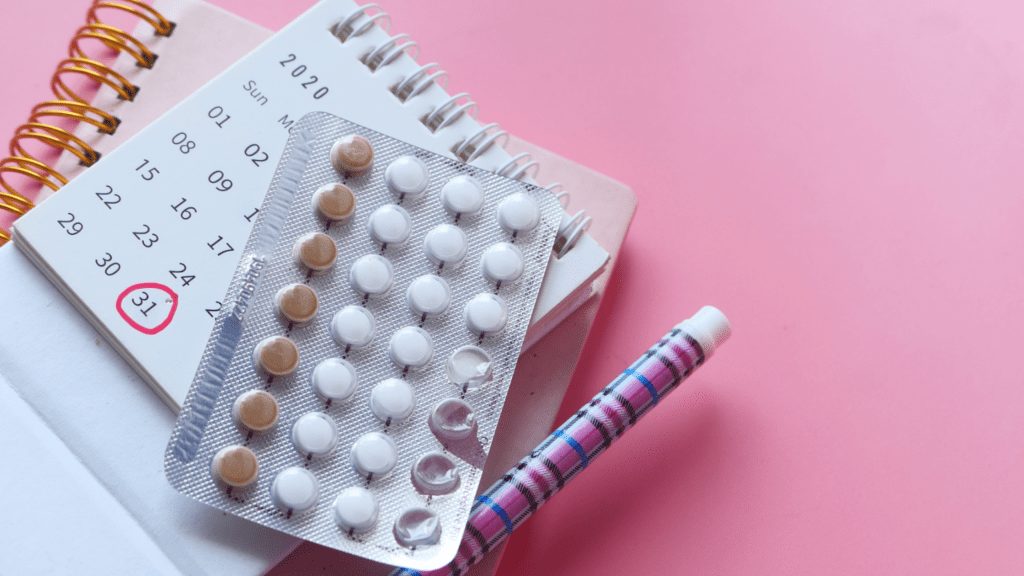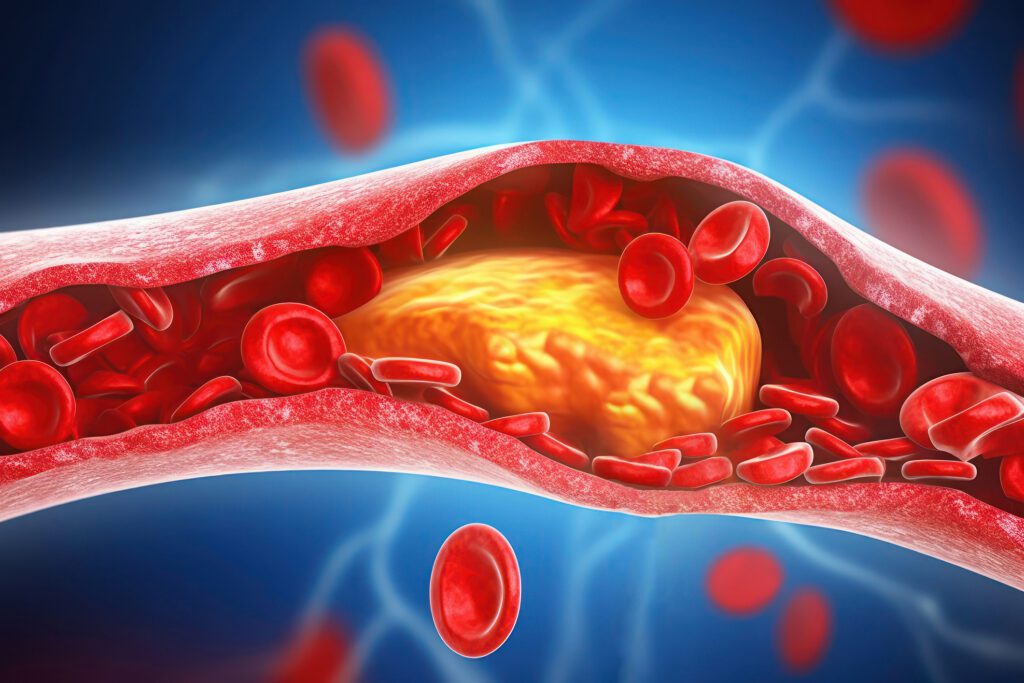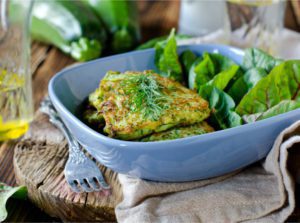As we deal with the 4th wave of COVID surging and leveling out, it’s becoming clear that the virus isn’t just a series of one-and-done infections.
So far, we’ve seen upwards of 30% of people diagnosed with COVID-19 develop long-term symptoms referred to as long COVID, long haul COVID, and post COVID.
But as we recognize long COVID as a real condition with lasting, potentially life-altering symptoms, how can Naturopathic Medicine play a role in protecting us from long COVID or alleviating its symptoms?
What is long COVID?
Before getting into the ways Naturopathic Medicine can be applied towards long COVID, let’s take a moment to understand what long COVID actually is.
While long COVID can be difficult to pinpoint and varies among individuals depending on their age, sex, weight, and pre-existing conditions, the French Higher Health Authority (HHA) defines long COVID as:
- An initial COVID infection with symptoms
- Symptoms lingering beyond 28 days
- And no other known cause
In other words, any COVID symptoms that last beyond four weeks from the initial infection fall under the umbrella of long COVID.
When do people recover from long COVID?
According to the HHA:
- 60% of patients still have one symptom after six months
- 25% of patients still have three symptoms after six months
- 7% of patients are not fully recovered
- 2% of patients end up back in hospital
Do factors like age or gender make a difference?
In general, men tend to have increased severity of illness whereas women will have longer term effects. Also, the older you may be, the greater the risk of severe illness. That being said, being overweight spares no age or gender – it is a risk factor for more serious outcomes all on its own.
How does long COVID affect people?
We are seeing long COVID reduce the overall quality of life for those affected. Some people are unable to take their dog for a walk or wash the dishes, let alone go to work.
In fact, the World Health Organization (WHO) recognizes that almost one third of people (29%), 6 months post infection with long COVID, have not returned to work. As a result, the US has now recognized long COVID as a disability under the American Disability Act, and I suspect Canada will eventually do so as well.
What are the symptoms of long COVID?
Overall, there are over 200 different symptoms that may persist post-COVID infection regardless of how mild or severe your symptoms may have been with the initial infection.
Here’s a table to break down what the research has shown thus far. While data for long COVID epidemiology will fluctuate across countries and publications such as Lancet, Nature, JAMA, etc, this is one summary to date, sourced from the HHA:
| Long COVID Symptoms @ 2 Months |
|---|
| Fatigue 55% |
| Headache 40% |
| *Brain Fog 30% |
| *Psychiatric Disorder (Anxiety/Depression) 30% |
| Dyspnea (Shortness of Breath) 23% |
| *Chest Tightness 22% |
| *Joint Pain 20% |
| *Hair Loss 20% |
| *Myalgia 19% |
| *Cough 15% |
| *ENT 13% |
| *Palpitations 9% |
| Bolded symptoms are the most commonly seen symptoms that persist & remain at 6 months post-infection *Symptoms also present in lesser numbers at 6 months post-infection |
Treating Long COVID
Conventional medicine
Unfortunately, conventional medicine has found very little in the way of proven, effective solutions to treating long COVID.
If you have ongoing neurological symptoms – you may be referred to a neurologist. If you have ongoing shortness of breath, you may be referred to a Respirologist and so forth. Research is ongoing, but – at least so far – conventional medicine’s search for long COVID treatments has come up empty handed.
Naturopathic medicine
This is where Functional Medicine and Naturopathic Medicine really shine, as they provide relief by addressing the underlying damage and understanding the pathophysiology that this virus has taken on the body.
Our approach is to appreciate the integration of the human body and to consider:
- Mitochondrial Function & Disruption
- Immune Function & Dysfunction
- Inflammation & Oxidative Stress
- Co-infections
- Biochemical Imbalances
- Lifestyle
It’s really important to address each patient’s vulnerabilities because it’s not just about the virus — it’s about how healthy the person is in order to combat and recover from the infection.
Protecting Yourself from Long COVID
It’s a critical time, now more than ever to increase our resistance and strengthen our immune resilience so that we may recover and thrive through this pandemic of COVID-19.
With the upsurge in breakthrough infections (meaning COVID illness that occurs in the fully immunized less than 6 months following the second dose) due to waning vaccine immunity and the need for boosters, “fully vaccinated” status is starting to mean less and less.
Let’s explore several of the health factors we can enhance or control to strengthen our resilience against COVID-19 and long COVID.
Weight, Diabetes & COVID Resistance
Obesity
There was a huge study done with over 400,000 people looking at a person’s weight and how it affected their resistance towards COVID. This study found that being overweight increases your risk of suffering with severe COVID 1.3 fold compared to individuals with a healthy weight.
Another study of 625,000 individuals with obesity, found that the risk of infection goes up 2.7-fold, the risk of severe COVID increases 3.8-fold, and the risk of COVID-related death increases 1.6-fold.
Diabetes
When you combine the risk of being overweight with diabetes, 79% of the impact related to being overweight is actually due to insulin resistance and loss of blood sugar control.
People with abnormal fasting blood sugar have a 1.55-fold increased risk for severe COVID. When looking at overt diabetes, people with Type 1 diabetes have a 3.9-fold increased risk for severe disease, while individuals with Type 2 diabetes have a 3.4-fold increased risk for severe COVID. In terms of death, people with diabetes overall have a 3.2-fold increased risk.
These results are significant, and they clearly highlight just how important it is to maintain proper blood sugar levels in the body when it comes to beating back the COVID virus.
Managing your Health Conditions
We now know that the top 4 major conditions of diabetes, hypertension, heart failure and obesity increase your risk of severe COVID and hospitalization by 63.5 %. But if you have more than one of these conditions, your risk increases by as much as 2 or 3-fold.
An analysis of 10 longitudinal studies that came out of the UK in July 2021, reported the following:
| Risk Factors | Risk of Long COVID |
| Poor Pre-pandemic Mental Health | 1.46x increased risk |
| Poor General Health | 1.62x increased risk |
| Asthma | 1.32x increased risk |
| Overweight or Obesity | 1.25x increased risk |
Naturopathic Medicine is well suited to help you manage your weight through our various medically-supervised weight loss programs. We can guide you through the appropriate diet & exercise, mitigate stress, improve mental health & sleep and provide hormone balance.
Diet & COVID Resistance:
Studies have also been able to connect a person’s diet and their risk of developing severe COVID symptoms. Vegan and pescatarian diets moderately reduce a person’s risk of experiencing severe COVID symptoms, while diets high in meat dramatically increase the risk.
Why does a meat-heavy diet contribute to COVID severity? The jury is still out, but many in the health community suspect it’s because of higher concentrations of inflammatory chemicals in meat.
Summary Table:
| Diet Type | Risk of Severe COVID |
| Vegan Diet | 73% reduction |
| Pescatarian Diet | 59% reduction |
| High Meat Diet | 390% increase |
Nutrients & Enhancing Resilience Against COVID
Before we dive into nutrients, keep in mind that simply addressing nutrient deficiencies will not prevent a person from contracting COVID.
Instead, by focusing on nutrition, the aim is to reduce the impact that COVID will have on your overall health by supporting your immune system and increasing your response to COVID infection and recovery.
Vitamin D
People who are deficient in vitamin D have a dramatically increased risk for death from COVID. While Vitamin D supplementation after the infection does provide some benefit, there’s a limited amount of research and the research has been inconsistent.
So, while Vitamin D is useful, it’s the deficiency that sets people up for long COVID and severity. If someone has a Vitamin D deficiency and contracts COVID-19, it’s unreasonable to think that simply giving them Vitamin D will resolve the situation – it won’t. That’s why optimizing your Vitamin D levels prior to potential infection is where the risk reduction in severe outcome happens.
Having healthy Vitamin D levels helps the body effectively combat COVID-19 for several reasons, like:
- Reducing inflammation
- Stimulating antimicrobial activity
- Increasing immune support in the respiratory system
The guidance suggested by the Institute of Functional Medicine (IFM) is that a laboratory range of >50 and < 80ng/mL serum 25-hydroxy Vitamin D may help reduce the risk of death from COVID-19 infections.
In Canada we have different ranges and units, so I recommend a little bit on the lower end where 50ng/ml is about 124 nmol/L, in Canadian Units – and quite high by Canadian standards.
It’s always advisable to have your Vitamin D levels tested with your Doctor prior to starting a Vitamin D protocol. Keep in mind, though, that this is always an out-of-pocket expense whether the testing is with your MD or ND.
Vitamin C
Patients who were hospitalized with severe COVID had barely detectable levels of Vitamin C. In fact, 82% of patients were below 0.4 milligrams per deciliter of blood. But for those patients who were in ICU, 94% of them had no measurable blood levels of vitamin C at all.
So, while it may be logical to consider immediate repletion with Vitamin C, there is much more research needed to convince the medical community at large. To date, there are a number of ongoing clinical trials, and the quickest summary of two research trials provided by Dr. Paul Anderson, ND can be found here.
In one China-based study of 75 subjects, receiving a very low dose of 3.5 grams of Intravenous Vitamin C (IVC) daily reduced their COVID symptoms by 2.5 days and reduced their hospital stay by 3 days.
A follow up study with 56 patients in a hospital (29 placebo and 27 in the IVC arm) on a substantially higher dose of 24 grams of Vitamin C daily was shown to have a 1.5-fold reduction in the risk of severe COVID and the risk of death from COVID. In addition, critical lung capacity was increased in the IVC group by over 1.5 times that of the placebo group.
More fascinating was the statistical significance found in a critical inflammatory marker “Interleukin-6” (Il-6 is one of the causes of the infamous and potentially deadly “cytokine storm”) which was eight times lower in the IVC group. Il-6 is the target marker of the very costly biological monoclonal antibodies currently under study for improving COVID outcomes for hospitalized patients.
While more research is ongoing and needed, Intravenous Vitamin C can be a cost-effective tool, available now, to help manage recovery for patients struggling with long COVID.
Omega 3 Fatty Acids
An interventional study of only 77 subjects who were given 1000mg (relatively small dose of 400mg EPA and 200mg DHA) over 14 days saw a substantial increase in survival of 27% versus 3% in the placebo group by reducing overall inflammation caused by COVID.
Zinc
The evidence for zinc is really quite strong in its ability for reducing symptom severity and duration of illness from COVID.
Zinc contributes to immune defense by supporting various cellular functions of both the innate and adaptive immune system. There is also evidence that it suppresses viral attachment and replication.
However, Zinc deficiency is common, especially in those populations most at risk for severe COVID-19 infections, and is challenging to accurately diagnose even with laboratory measures.
Supplementation with zinc is supported by evidence that it both prevents viral infections and reduces their severity and duration. Moreover, it has been shown to reduce the risk of lower respiratory infection, which may be of particular significance in the context of COVID-19.
When considering dosage and how to take Zinc, IFM recommends taking 30 mg 1-2 times a day orally in the form of zinc citrate, picolinate, or glycinate. You should be aware that taking zinc can cause nausea, so it’s recommended to always be taken with food. It’s also suggested that you take 2-3mg of copper so your higher zinc intake doesn’t result in a copper deficiency.
Melatonin
Melatonin is yet another “nutrient” that is actually a hormone, and it’s been shown to reduce inflammation. This has not gone unnoticed by the COVID-19 research community, with two recently published papers proposing the use of melatonin as a therapeutic agent in the treatment of patients with COVID-19.
The Biochemistry of COVID
Before I dive into the beneficial botanicals for treating and preventing COVID, let’s look at a little more biochemistry.
There is a compound in the human body called Furin which is in almost every cell in the body. Today, we understand this is a mechanism that activates the virus. There is a Furin cleavage site on the spike protein, which allows the spike protein to invade the cell.
The Furin cleavage site has been known for about 18 months now as a central step to the way the virus attacks the human cell. Specifically, the site is snipped by Furin (or related enzymes) in the spike protein of the Sars-CoV-2 coronavirus. This transformation enables the spike protein to bind to the ACE2 receptor of human cells, initiating viral attachment and infection.
Underlying nutrient imbalances weaken our cells and thus increase the ability of the virus to invade. This is where the utilization of different nutrients and botanicals helps in the resistance and recovery from COVID infection.
Herbs that Enhance Resilience Against COVID
Curcuma longa
Curcumin is the principal curcuminoid compound from the root of turmeric, and studies have shown that – when delivered in a small, easily absorbable form – it’s effective at both reducing inflammation and stopping the virus from replicating.
Another small clinical trial also found that giving people curcumin for 14 days decreased the death rate from COVID by 50%. So, while the number of people in the trial was small, the results potentially hold huge significance.
Andrographis
This is a potent herb used largely in Eastern medicine for its anti-viral properties. There is strong clinical evidence supporting the use of the leaves of Andrographis paniculata in treatment and prevention of upper respiratory tract infections (URTI), coughs, and sinusitis.
Andrographis has demonstrated anti-inflammatory, antiviral, and immune-stimulatory activities and has been shown, in vitro, to be effective against avian influenza A (H9N2 and H5N1) and human influenza A H1N1 viruses. It has been shown to inhibit platelet-activating factor–mediated inflammatory responses, to reduce the expression of cyclooxygenase-2, and to have analgesic as well as antipyretic effects.
In addition, Andrographis is one of many agents that acts to decrease the activity of Furin protease, which is a key step for the COVID virus to activate and infect the body’s cells.
Astragalus
Astragalus membranaceus has been used in Traditional Chinese Medicine (TCM) for centuries. Astragalus is well-known for its:
- Antiviral activity
- Anti-inflammatory properties
- Priming the innate immune system
- Reducing NLRP3-mediated inflammation
In addition, it contains the plant alkaloid swainsonine, which inhibits the glycosylation process that the COVID virus uses to attach to human cells.
Echinacea species
Echinacea is by far my favourite herb.
In our own practice, we always use a blend of E. purpurea and E. angustifolia, as Echinacea’s immunological effects appear to be derived from a combination of constituents. E. purpurea has been shown to stimulate macrophage activation as well as NK cell activity in both human and animal models, and it may be linked directly to increased cytokine expression.
Various Echinacea preparations have shown antiviral activity, and have been shown to reduce the frequency, severity, and/or duration of upper respiratory tract symptoms in several trials.
Elderberry
Elderberry (Sambucus nigra) is seen in many medicinal preparations and has widespread historical use as an antiviral herb. This plant strengthens cellular defense and repair mechanisms and has been shown with good clinical evidence to reduce and improve symptoms and shorten the duration of infection. And just as important – Elderberry also tastes good! This allows us to blend botanicals together and use elderberry to make it palatable.
…and more!
Of course, there are many more herbs to consider including Berberine, Glycyrrhiza (licorice) and a vast array of mushrooms that have been shown to improve overall lung capacity in long COVID – we just can’t write a book here!
Overall, many of these herbs work together synergistically and can be offered in a combined tablet form with standardized extracts.
We find custom blending selected herbs for patients can help provide short-term or long-term immune support while respecting any known interactions with medications. It is important to always consult a physician familiar with botanicals and drug interactions.
Homeopathy & Long COVID Recovery
Finally, a less appreciated area of medicine is Homeopathy. We have case studies published in the scientific literature all over the world with efficacy for Homeopathy treatment of long COVID.
During this pandemic, approximately 9 primary medicines have emerged in treatment of long COVID. Countries such as India, Israel, Spain, Brazil, Canada and the US are adding to an overall International Database of clinical knowledge.
We can tailor which remedy will match the individual’s constellation of symptoms and which organs have been inflamed and weakened to enhance recovery from long COVID. It is important to speak with a Naturopathic Physician trained in Homeopathy or a Homeopathic Doctor in advance of taking any of these remedies.
So what have we learned?
Based on all the available research, we know that:
- Having a plant based diet, maintaining a healthy weight and healthy blood sugar are factors in increasing our resilience against COVID-19.
- Being free from (or working with a physician to mitigate) the 4 major pre-existing conditions of diabetes, hypertension, heart failure, and obesity is critical to avoiding the worst effects of COVID-19.
- Having adequate nutrient levels of Vitamin D, Vitamin C, Omega 3 fatty acids and other nutrients (if and when appropriate) provides added protection.
What happens now?
In closing, I’d like to echo the words of Dr. Joe Pizzorno, Naturopathic Doctor and Functional Medicine leader:
Regardless of your vaccine status, we must all increase our resistance against COVID-19 due to waning vaccine immunity.
There are many factors that are under our control that can be modified, so if you feel you’re at a higher risk of contracting long COVID, or if you feel you may be experiencing symptoms of it already, please consult your Naturopathic Doctor or Functional Medicine Doctor to discuss appropriate treatments and dosing.
Don’t go it alone — we’re here to help support your recovery and rebuild your resilience. This is a global pandemic, and it will take a community effort to help one another heal and move forward.
References
Gratitude goes to the following physicians & organizations for their research & presentations to make this blog possible.
- Dr. Joe Pizzorno, ND – Founder of Bastyr University & Chairman for the Board of Institute of Functional Medicine
- Dr. Joel Evans, MD, Senior Advisor for IFM and IFM COVID Rapid Response Task Force
- Dr. Ronald Boyer, MD – Centre for the Education & Development of Homeopathy
- Dr. Paul Anderson, ND – https://www.consultdranderson.com/about/
References for this blog are too long to list, some links have been provided. Please contact our office if you would like the complete reference list.






